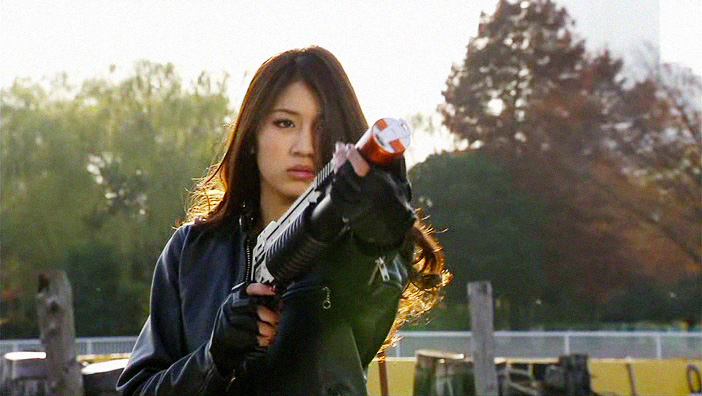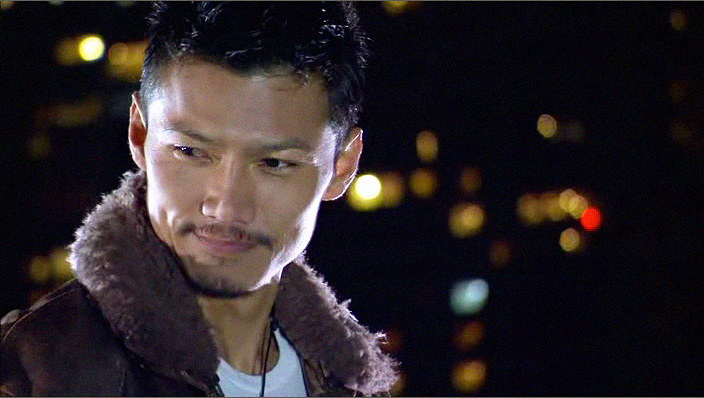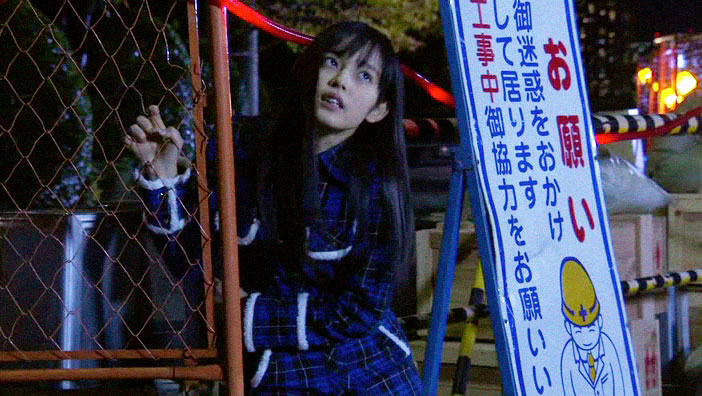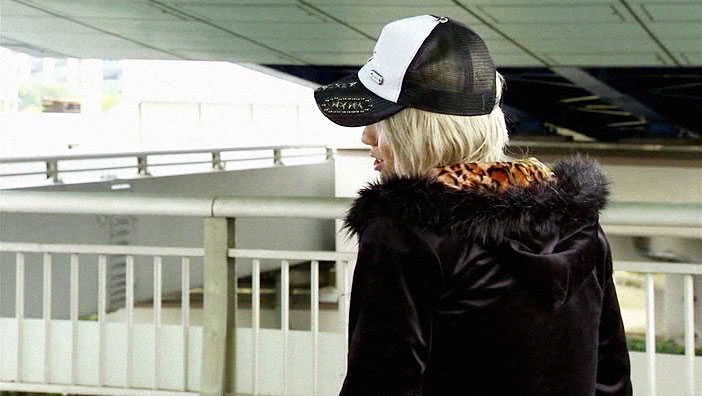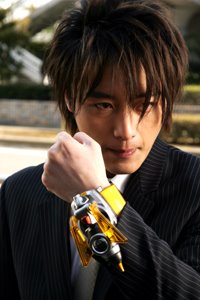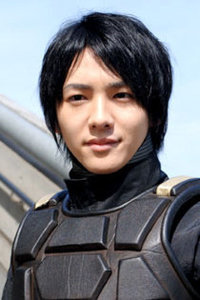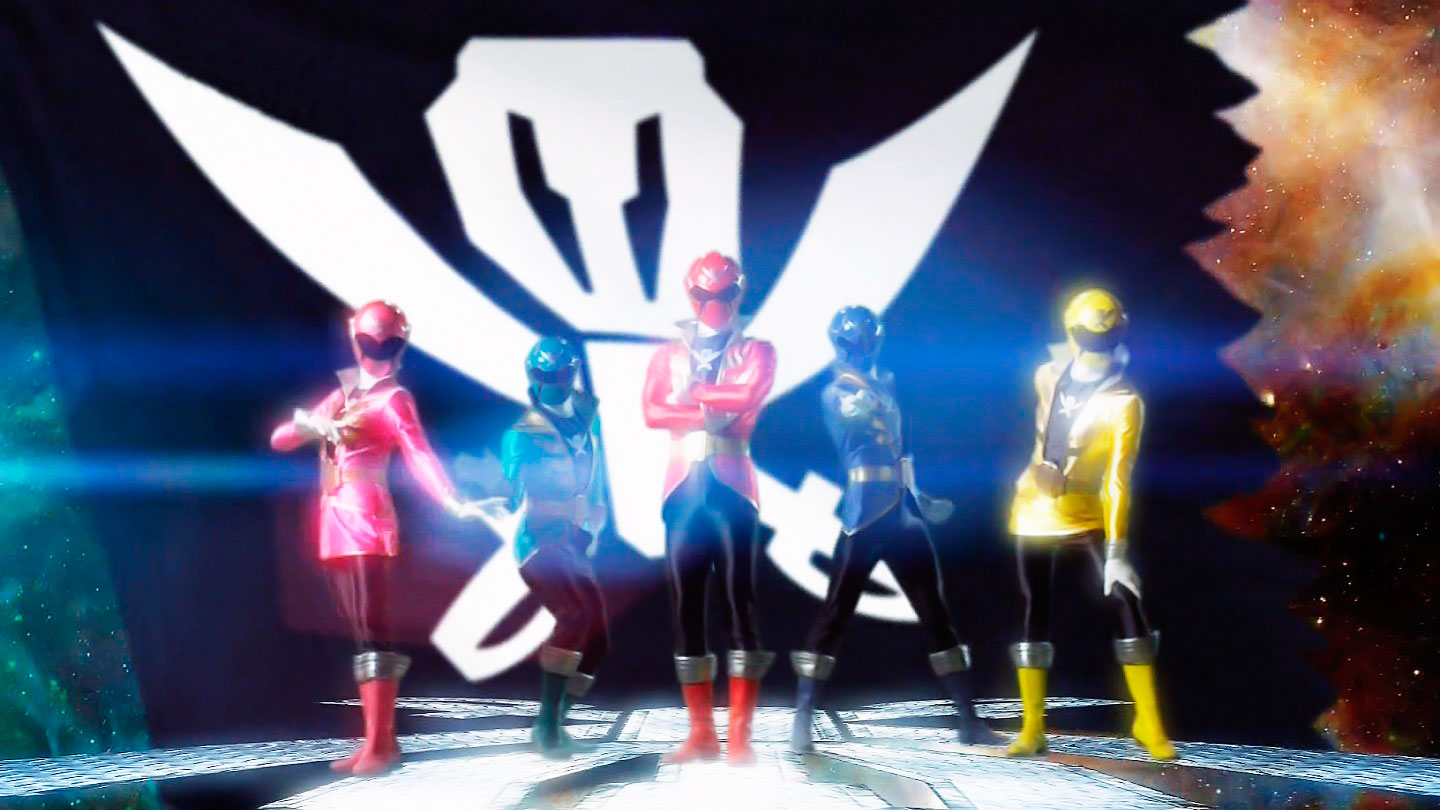Still playing catchup. These obviously deal with a whole more than just Date, but I’m really interested in him, so that’s what this post will be about mostly.
Episodes 17 and 18 are basically a bit of an introduction to Date Akira, the man behind Kamen Rider Birth. Of note: he’s not quite as non-chalant a dude as his first moments on the show would lead us to believe. He’s just a very pragmatic, practical man, who gets shit done with minimal fuss. He’s technically a mercenary, because he’s just there to earn one hundred million yen in exchange for collecting a whole lot of Cell Medals. Obviously, it would seem that there is a reason why he needs said money, I very much doubt that he just wants money for the sake of having money. In this, he actually reminds me a bit of my favorite Kamen Rider ever, Kitaoka Shuichi, whose desire to win the Rider Battle in Ryuki so he can live forever is presented originally as something fundamentally self-serving… and it is, of course, but there’s a lot more to it than that, and there is a very good reason behind it which, while not actually making him a better man, makes him quite sympathetic. And I’ll just stop now, because Super Lawyer is not the point of the post. I just brought it up because even though Kitaoka and Date could not be more different in a lot of way, the shared quality of having a hidden motivation for behavior which can be categorized as amoral is something I find intriguing about both.
Before his current gig as Birth, he was “abroad” but is just in Japan to earn money. In episode 20, he tells Chiyoko that he wasn’t abroad travelling, he was working all over the world. And in episode 17, there is a close up shot of his pants where you can see a badge which appears to be from a “detention center” in the US. So he was either a detainee, or maybe a guard? There’s a certain military air about him, so it could be either, I think. And I have no idea if this has been revisited or not, so there you go. ← Post-subbed 24, apparently way off!
I’ll admit that I wasn’t too into 17-18’s story about the girl that was in love with her kendo instructor, which is probably why I fell so behind in the series in the first place. The three things I took away from it are that Eiji is clueless about romance, and also the revelation Date made about his own motivations, when he told the girl that if she wanted to ruin her instructor’s wedding she should do it with her own hands. He went on to describe himself as a “slave to desire” (referencing his desire to get a hundred million yen), but that his two rules were to never get other people involved in his own agenda, and to never do something to “make yourself cry”. So what I get from that is basically to be honest about yourself and your own desires, to own who you are, and to take responsibility for your own destiny. Like I said, he’s a pragmatist above all else, who lives by and answers to his own moral code and no one else’s.
The third thing I took from these two episodes was that he declined agreeing to cooperate with Eiji because he thinks Eiji strikes him as someone who’d make himself cry.
(And yes, the image is actually from episode 20, because this post was going to be about all those episodes, then I changed my mind).
